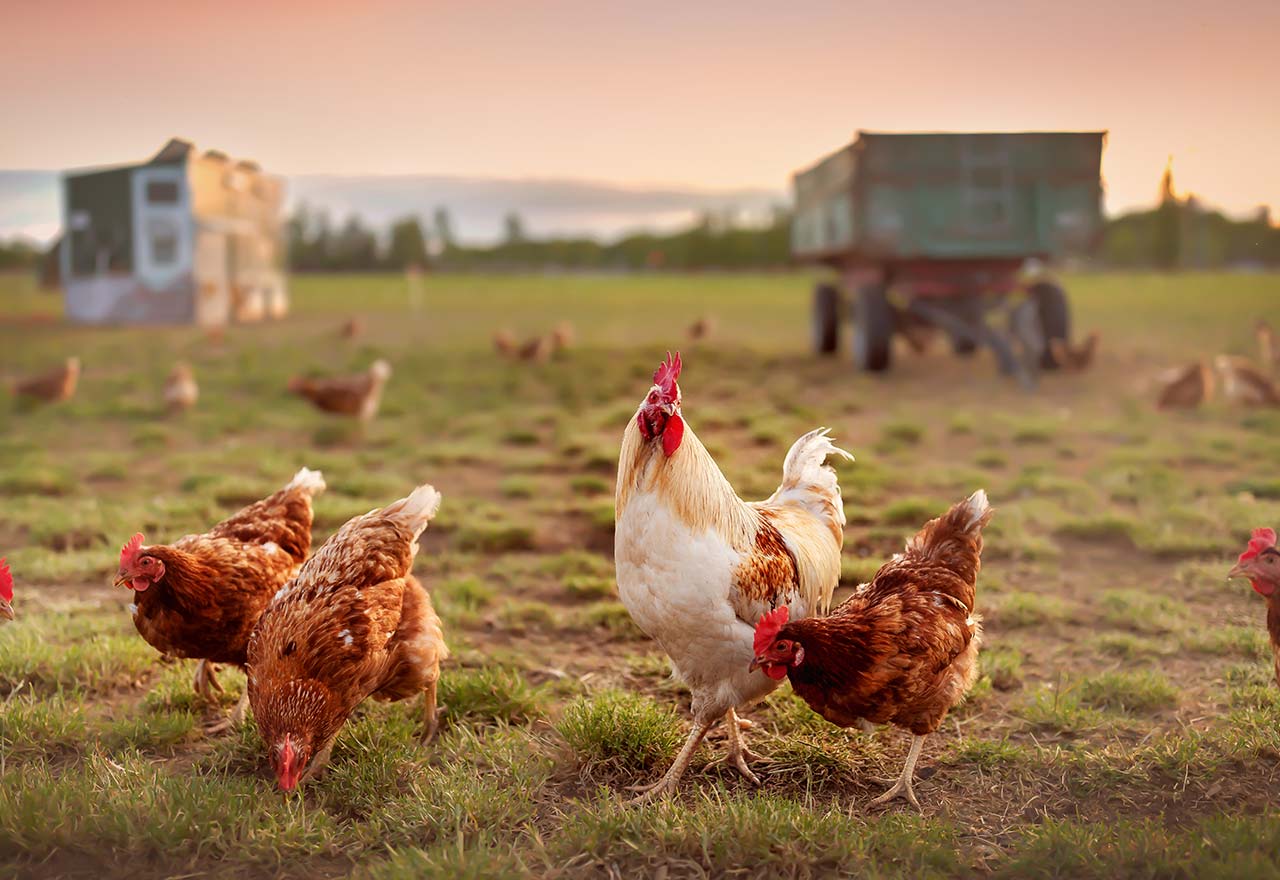The Department of Agriculture (USDA) announced plans to reinstate the Organic Livestock and Poultry Practices (OLPP) Rule through new rulemaking, after the previous final rule was withdrawn by the Trump administration. In his statement on June 17, 2021, USDA Secretary Vilsack noted that the new rulemaking would address the prior administration’s reasoning for abandoning the OLPP.
When it was first published in April 2016, the OLPP was considered by many stakeholders to be an “animal welfare update” for organic livestock production. While the Organic Foods Production Act (OFPA) of 1990* does not contain specific animal welfare provisions, it requires access to the outdoors, shade, shelter, exercise areas, fresh air, clean water for drinking, and direct sunlight for all animals (with some exceptions). Nevertheless, many industrial-scale organic operations have capitalized on perceived loopholes in the law.
The OLPP would most notably improve animal welfare for poultry; birds are not currently guaranteed legitimate outdoor access. “Vilsack specifically cited a goal of disallowing use of porches as outdoor space,” commented Kestrel Burcham, an attorney and Cornucopia’s Policy Director. “These industrialized egg producers have always flouted organic ideals. Hearing that the Secretary is invested in making this regulatory improvement is encouraging.”
The Cornucopia Institute has tried to address many long-held animal welfare issues within the label, scrutinizing and commenting on previous iterations of this detailed rulemaking.
“Consumers have a right to know not only what’s in their food, but also how that food was raised,” continues Burcham. “Schisms in the organic egg and poultry marketplace have allowed industrialized producers to thrive. Cornucopia would like to see additional improvements in other areas of the regulations to ensure that the organic label meets consumer expectations for animal welfare.”
Watch for a future Action Alert from Cornucopia when the new OLPP rulemaking lands. “Passionate feedback from organic stakeholders will be needed to ensure we get the best outcome: a rule that will support and preserve organic integrity,” concluded Burcham.
Expect some lag time: Progress moves at the slow pace of regulatory change. In the meantime, organic advocates can take immediate steps toward a more ethical food system. “Without clear rules and enforcement, authentic organic farmers rely on consumers to tell the difference between factory-organic production and their higher value products,” Burcham says. “Help your local and authentic organic farmers who are invested in animal welfare by choosing their products first.”
Cornucopia’s scorecards can help. Use our research to find brands that align with your values.
* Title 21 of Food, Agriculture, Conservation, and Trade Act of 1990, codified at 7 U.S.C. ch. 94, 7 U.S.C. § 6501 et seq.


